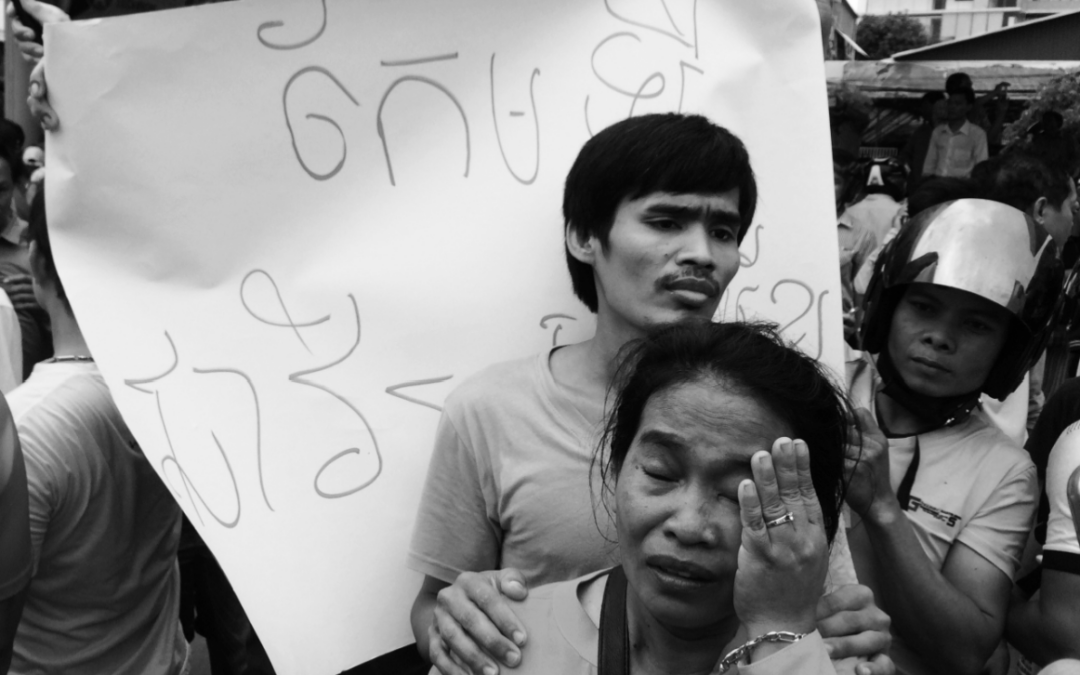
Mar 23, 2017 | News
Cambodia should continue to investigate the killing of prominent political commentator Kem Ley in order to address key aspects of the case that appear to have been inadequately investigated, said the ICJ, Amnesty International, and Human Rights Watch today.
On 23 March 2017, the Phnom Penh Municipal Court found Oeuth Ang guilty of the premeditated murder of Kem Ley on 10 July 2016 and sentenced him to life imprisonment.
Prior to the half-day trial, which took place on 1 March 2017, the authorities released almost no information about the investigation.
“The trial revealed that the investigation appeared to be deficient in several important respects,” said Kingsley Abbott, the ICJ Senior International Legal Adviser who observed the trial.
“Until there is an independent, impartial and effective investigation to establish whether anyone else was involved in the killing, the victims of this serious crime, including Kem Ley’s wife and children, will be unable to obtain justice,” he added.
Even the very identity of the defendant was at issue. At trial, Oeuth Ang maintained he is 39-years-old, unmarried, and named “Chuob Samlab” – which translates in English as “Meet to Kill” – from Banteay Meanchey province.
However, the prosecutor submitted that based on the fingerprint on the ID card of Oeuth Ang, he is satisfied that the defendant is in fact Oeuth Ang, married, born in 1972, from Siem Reap province.
“The proceedings may have established that Oeuth Ang pulled the trigger, but the investigation does not seem to have considered whether someone else loaded the gun,” said Champa Patel, the Amnesty International Director for Southeast Asia and the Pacific. “It is clear that the authorities want to close the book on this case and move on but failures in the investigation of this heinous act can only serve to compound the injustice already suffered by the family of Kem Ley”.
The hearing commenced at 8:40 and concluded at 13:00. After Oeuth Ang gave evidence, ten witnesses gave oral testimony including two Caltex workers, seven officials who were involved in the investigation in different capacities, and a doctor who examined Kem Ley’s body at the scene of death.
Official reports and the statements of several witnesses were also read into evidence, and the prosecution played eight videos from different locations, including one captured by a closed circuit television (CCTV) camera inside the Caltex station where Kem Ley was killed.
Kem Ley’s widow, who was named as a civil party, did not appear at the trial but her civil party statement was read into evidence.
“The authorities’ failure to investigate so many clear gaps in the defendant’s story and the court’s unwillingness to examine them suggest that a quick conviction rather than uncovering all involved was the main concern,” said Phil Robertson, Deputy Asia Director at Human Rights Watch. “Kem Ley’s family have been outspoken in their disbelief that Oeuth Ang was solely responsible for the murder, and the trial’s conduct lends credence to their skepticism.”
Contact
Kingsley Abbott, ICJ Senior International Legal Adviser for Southeast Asia, t: +66 94 470 1345 ; email: kingsley.abbott(a)icj.org
Cambodia-KemLey Verdict-News-Press releases-2017-ENG (full story, in PDF)
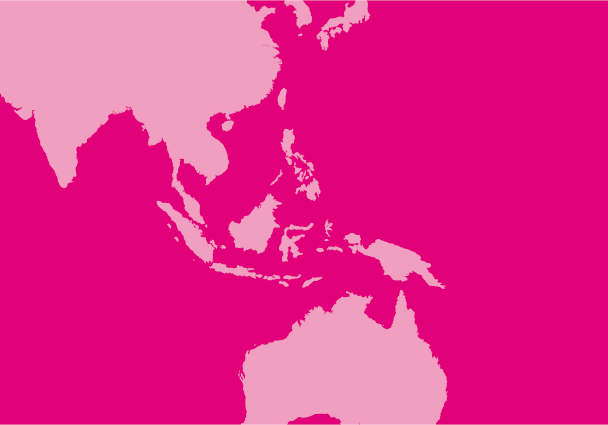
Feb 7, 2017 | News
Cambodian authorities should immediately drop the politically motivated criminal investigation of human rights defenders Am Sam-at and Chan Puthisak, the ICJ, Amnesty International and Human Rights Watch said today.
Cambodian officials have accused Sam-at, a respected human rights monitor at the Cambodian League for the Promotion and Defense of Human Rights (LICADHO) for nearly 20 years, and Puthisak, a land rights activist from Boeung Kak Lake and former prisoner of conscience, of instigating violence at a 10 October 2016 demonstration.
Para-police forces, who are regularly used to suppress demonstrations, violently dispersed what had been a peaceful protest in Phnom Penh.
When Puthisak attempted to prevent para-police from confiscating a drum that was being used by a demonstrator, four or five para-police attacked him, repeatedly beating him on the head with their fists, according to a video of the incident.
When Sam-at tried to stop the assault, the para-police attacked him, also beating him on the head. Both men sustained injuries that needed medical attention.
“The investigation of Sam-at and Puthisak by the Cambodian authorities is a typically absurd and undisguised case of judicial harassment,” said Champa Patel, Southeast Asia and Pacific Director at Amnesty International.
“As usual, unnecessary and excessive use of force by the para-police goes unpunished, and those who work to promote and protect human rights find themselves subject to criminal proceedings.”
On 4 November, two members of the para-police filed a complaint with the Phnom Penh Court of First Instance, alleging that they were injured during the dispersal of the demonstration.
The authorities are investigating Sam-at and Puthisak for instigating intentional violence, under Articles 27 and 217 of Cambodia’s Criminal Code, which carry penalties of up to three years in prison.
Both men are due for questioning on 8 February by Phnom Penh Court of First Instance Deputy Prosecutor Ngin Pich.
There has been no indication that complaints filed against para-police by Sam-at and Puthisak after the incident on 10 October 2016 are being investigated.
The 10 October demonstration involved approximately 150 participants peacefully calling for respect for housing and land rights in Freedom Park, an area designated for demonstrations.
The protestors were marching on a street adjacent to the park when the incident took place.
Videos of the incident establish that the demonstration was peaceful and that Sam-at was wearing a blue human rights monitor vest when the para-police attacked him.
The case investigation of the two falls within a wider pattern of judicial intimidation in Cambodia.
There are currently as many as 26 human rights and political activists in prison on charges which have all the hallmarks of being politically motivated.
This includes 14 political activists who were jailed following a demonstration in July 2014, when para-police violently clashed with participants.
No efforts have been reported of the authorities’ efforts to bring to justice the para-police responsible for the unlawful use of force.
“The case against Sam-at and Puthisak is part of an extensive effort by the Cambodian authorities to discredit the legitimate work of human rights organisations and to make clear the threat of prison for everyone working to promote and protect rights in the country,” said, Phil Robertson, Asia Deputy Director at Human Rights Watch.
“This campaign of intimidation against rights advocates has to stop now.”
Para-police, often referred to as “district security guards,” are auxiliary security forces that are regularly used to violently suppress demonstrations in Cambodia.
No single legal document sets out the rules governing their functions and powers. Rather, their legal basis and the rules governing their activities are set out in a confusing combination of government statements and policies, and by instructions from the Ministry of Interior.
They work in tandem with police, under the authority of district governors.
“The Cambodian government should be commending people like Sam-at and Puthisak for their work to promote and protect human rights rather than trying to intimidate them,” said Kingsley Abbott, Senior International Legal Advisor at the ICJ.
“The case should be immediately and formally closed and a genuine investigation initiated into wrongful use of force by the para-police.”
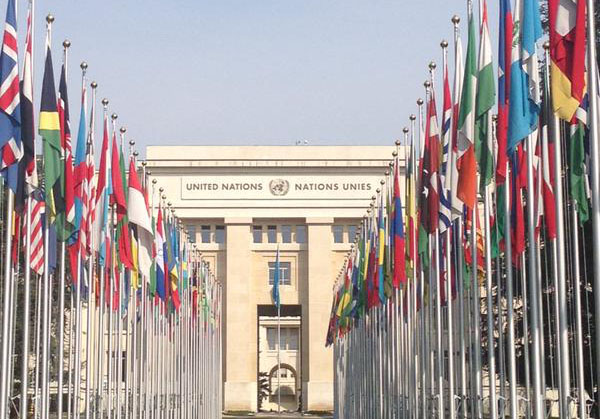
Sep 28, 2016 | Advocacy, Non-legal submissions
The ICJ today delivered an oral statement to the UN Human Rights Council, during the interactive dialogue with the Special Rapporteur on the situation of human rights in Cambodia.The ICJ welcomed the report of the Special Rapporteur on the situation of human rights in Cambodia, before continuing as follows:
The ICJ concurs with the Special Rapporteur’s observation that “democratic space has been reduced in Cambodia through the application of a range of laws … and the restriction of a range of legitimate activities of non-governmental and civil society organizations.”
Since 2014, Cambodia has adopted laws inconsistent with its international human rights obligations, including undermining the independence of the judiciary, and unduly restricting the work of civil society.
Human rights defenders increasingly face retaliation for their legitimate work, shrinking civil society space.
Last week, the ICJ observed the criminal trial of Ny Chakrya, Deputy Secretary-General of the National Election Committee and former Head of Human Rights Section and Legal Aid at a leading NGO, ADHOC. He was convicted of crimes, including criminal defamation, for raising allegations of human rights violations. Ny Chakrya and four staff-members of ADHOC, all of whom are in detention, also face another investigation with all the hallmarks of being politically motivated.
Indeed, numerous members of the political opposition and human rights defenders are in exile, face legal proceedings, or have been convicted, in cases that also appear to be politically motivated.
Further, the investigation into the July 2016 killing of leading human rights defender, Kem Ley, lacks transparency.
We very much welcome the spotlight the Special Rapporteur placed on such cases by naming them here today.
2016 marks 25 years since the Paris Peace Agreements under which Cambodia undertook to “ensure respect for and observance of human rights and fundamental freedoms in Cambodia.”
We urge Cambodia, the signatories to the Paris Peace Agreements, the Special Rapporteur on Cambodia, the Office of the High Commissioner for Human Rights, and the Human Rights Council, to work to ensure these Agreements are given full effect – particularly as Cambodia prepares for local and national elections scheduled for 2017 and 2018.
The statement may be downloaded in PDF format here: hrc33-srcambodia-2016
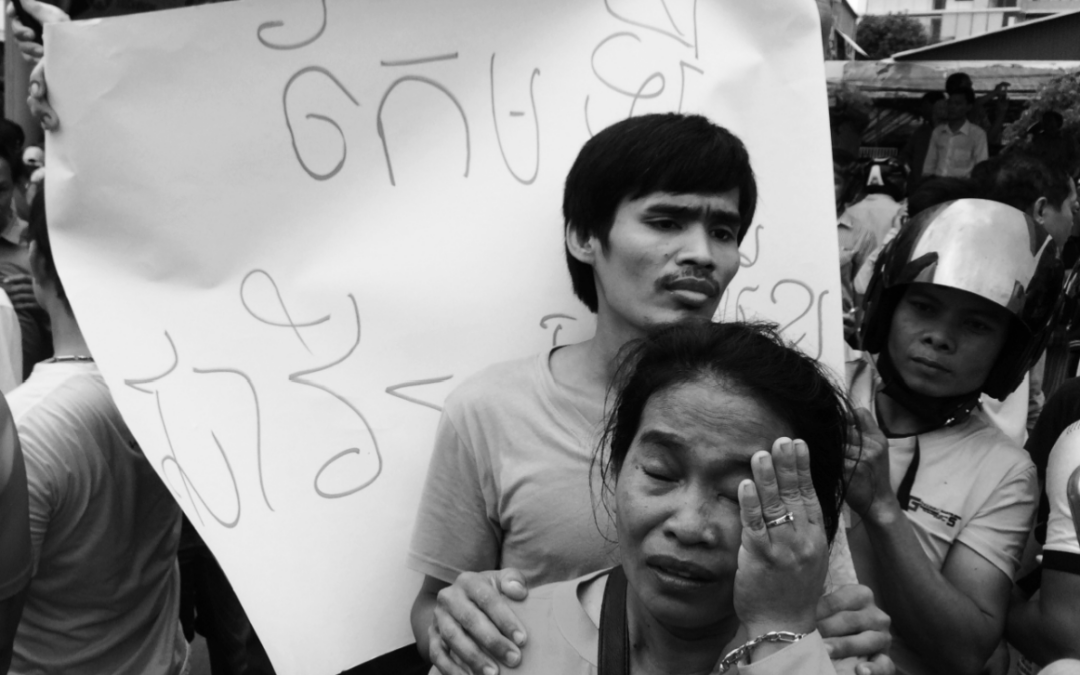
Jul 13, 2016 | News
The ICJ deplores the killing of Kem Ley, an outspoken human rights defender, political analyst and organizer of grassroots community activists, and calls on the Government to carry out a prompt, impartial and effective investigation to identify and bring to justice those responsible.
Shortly after the killing, Cambodian police arrested a suspect approximately two kilometers from the crime scene who “confessed” on a leaked video to killing Kem Ley for failing to repay a personal loan.
“Kem Ley, a prominent political commentator and human rights defender, was killed against a backdrop of escalating attacks on civil society and the political opposition,” said Kingsley Abbott, ICJ Senior International Legal Adviser.
“In the context of Cambodia’s long history of impunity in cases of allegedly politically motivated killings, and even though a suspect is already in custody, the authorities must continue the investigation in a transparent and methodical manner until all potential lines of inquiry have been exhausted,” he added.
There are already concerns about certain events that took place immediately after the killing which may have harmed the investigation.
For example, shortly after news spread of Kem Ley’s death, the authorities observed a large crowd gather in and around the courtyard of the petrol station in which he was killed, potentially compromising important sources of evidence from this wider area and the vehicles within it.
The large gathering effectively served to block medical vehicles from removing Kem Ley’s body from the scene, which may have prevented a forensic autopsy from taking place.
Later the same afternoon a large procession accompanied his body from the crime scene through the streets of Phnom Penh to Wat Chas pagoda, where his body remains lying in wake.
“Where it lacks capacity, Cambodia should seek technical assistance from States and international organizations particularly in the specialized areas of Closed Circuit Television (CCTV) and telecommunication data analysis which may assist in establishing the identification and movements of the perpetrator and whether he or she acted alone or with others,” Abbott said.
The ICJ calls on the Cambodian authorities to:
1. Ensure that the investigating judge and investigators are – and are seen to be – impartial and independent of undue influence, and are free to perform their professional functions objectively without intimidation, hindrance, harassment or improper interference.
2. Ensure that the investigation process and its outcome are transparent and open to scrutiny by the victims and the general public.
3. Protect the rights of the victims including by ensuring Kem Ley’s family:
- receive regular information about the progress of the investigation and their rights;
- receive all necessary support and assistance; and
- are protected from any ill-treatment, intimidation, or sanction as a result of their participation in the investigation.
4. Protect anyone who provides information to the authorities from ill-treatment, intimidation or sanction.
5. Actively seek out and accept offers of assistance from States and international organizations including in the areas of:
- the analysis of any CCTV and telecommunication data; and
- the forensic examination of Kem Ley’s body, crime scenes and vehicles.
Background
At approximately 0830 on 10 July 2016, Kem Ley was shot and killed at a petrol station cafe on Phnom Penh’s Monivong Boulevard. Shortly afterwards, the authorities apprehended a man nearby in connection with the killing who identified himself as “Chuob Samlab”.
On a leaked video, the man reportedly “confessed” to the killing claiming he shot Kem Ley over a debt the political commentator allegedly owed him, a fact reportedly disputed by Kem Ley’s widow and the suspect’s wife.
Under Article 12 of the United Nations Declaration on Human Rights Defenders, States are required to take all necessary measures to ensure the protection of human rights defenders against any violence, threats, and retaliation.
Contact:
Kingsley Abbott, ICJ Senior International Legal Adviser for Southeast Asia, t: +66 94 470 1345 ; email: kingsley.abbott(a)icj.org
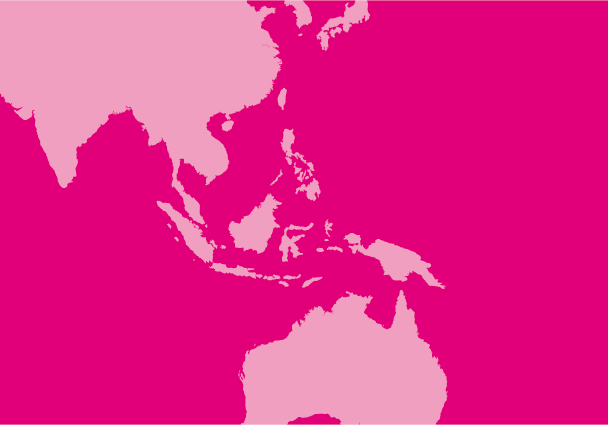
May 9, 2016 | News
The ICJ is deeply concerned at the recent legal harassment of several Cambodian human rights defenders and perceived political opponents, which raises serious questions as to the impartiality of the investigators, prosecutors and judges involved.
The ICJ calls on the Government to immediately conduct an independent review of the decision to pursue these cases, to end the prosecution of those who have been charged if the allegations are found to be groundless or the proceedings to have been unlawful or abusive, to cease the use of judicial and prosecutorial processes to harass and intimidate human rights defenders and perceived political opponents, and to respect its international obligations under the Convention on the Privileges and Immunities of the United Nations.
“The decision to proceed with these cases should be subject to a careful and independent review and any charges that have resulted must be dropped if the allegations are found to be without merit or have been carried through unlawful or abusive procedures,” said Kingsley Abbott, International Legal Adviser for Southeast Asia with the ICJ.
“The strong appearance of bias present in these cases flies in the face of the absolute right of all accused to have their case considered by independent and impartial prosecutors and judges at every stage of the process,” he added.
The different proceedings all stem from allegations centered on an alleged affair between Khom Chandaraty (also known as Srey Mom) and Kem Sokha, acting leader of the opposition Cambodia National Rescue Party (CNRP).
After a voice recording appeared on social media, allegedly of a conversation between them, the Cambodian Counter-Terrorism Directorate of the Government’s Central Directorate for Security “invited” Srey Mom for questioning, which prompted her to seek human rights assistance from a leading Cambodian NGO, the Cambodian Human Rights and Development Association (ADHOC).
On 11 March 2016, the Counter-Terrorism Directorate questioned Srey Mom. She denied the suggestions she had a relationship with Kem Sokha and that she was the female voice on the recording.
On 19 April 2016, after having met with ADHOC on a number of further occasions, Srey Mom was asked in a closed session with a prosecutor at the Phnom Penh Municipal Court to answer allegations of having provided false testimony and of having engaged in prostitution.
On this occasion, Srey Mom admitted to a relationship with Kem Sokha.
On 22 April 2016, Srey Mom alleged in an open letter that ADHOC staff had attempted to persuade her to lie to the authorities.
On 2 May 2016, an Investigating Judge in Phnom Penh charged four staff members of ADHOC, Nay Vanda, Ny Sokha, Yi Soksan, and Lem Mony, with “bribery of a witness”.
A former staff member of ADHOC, Ny Chakrya, and a staff member of the Cambodia Office of the High Commissioner for Human Rights (OHCHR), Sally Soen, were also charged with being accomplices, notwithstanding Sally Soen’s immunity from prosecution under the Convention on the Privileges and Immunities of the United Nations.
The allegation of bribery appears to relate to the fact that ADHOC reportedly provided Srey Mom with a small sum of money to cover food and transport costs, including to attend questioning by judicial authorities.
“While Cambodia has a positive legal duty under international law to protect human rights defenders from attacks arising out of their work, these proceedings appear to be aimed at intimidating and silencing Cambodian civil society and are the latest in a series of laws and actions directed against them,” said Abbott.
Last year, the Government passed the Law on Associations and NGOs (LANGO), which Abbott stated would “severely restrict the ability of members of civil society to exercise their rights to freedom of association and expression which Cambodia has a duty to protect under its international obligations.” Abbott further stated that the Governments intention was to “…weaken the impact of NGOs, including human rights defenders.”
Under Article 12 of the United Nations Declaration on Human Rights Defenders, States have an obligation to take all necessary measures to ensure the protection of human rights defenders, including against any threats, pressure, retaliation or arbitrary action as a consequence of the legitimate exercise of their rights under the Declaration.
In other proceedings, the Phnom Penh Municipal Court summoned Kem Sokha to answer allegations of criminal defamation and two other members of the CNRP, Pin Ratana and Tok Vanchan, have been questioned about allegations of prostitution.
Political commentator, Ou Virak, has been summoned to appear in the Phnom Penh Municipal Court on 12 May 2016 to answer allegations of criminal defamation for expressing the view that the ruling Cambodian Peoples Party (CPP) was exploiting the alleged affair between Kem Sokha and Srey Mom.
On 24 April 2016, a CNRP commune chief, Seang Chet, was arrested and detained on charges of bribery after Srey Mom alleged Seang Chet had attempted to pay her mother US $500 to encourage her to deny the affair.
Read also:
Cambodia: the ICJ condemns Senate’s approval of draft Law on Associations and NGOs
Cambodia: approved NGO law poised to hobble the work of civil society
Cambodia: withdraw draft law on associations and non-governmental organizations – joint letter
Cambodia: ICJ and other rights groups urge end to NGO law
Contact
Kingsley Abbott, ICJ’s International Legal Adviser, t: +66 94 470 1345, e: kingsley.abbott(a)icj.org









